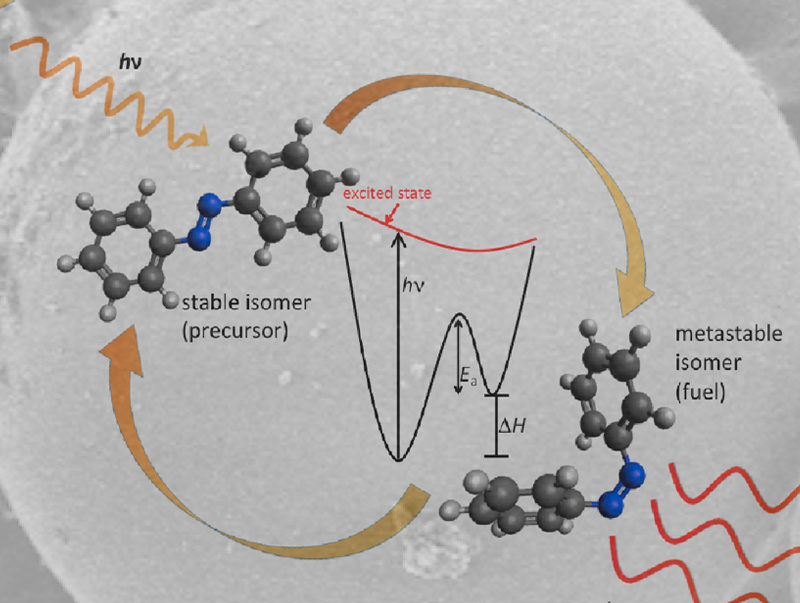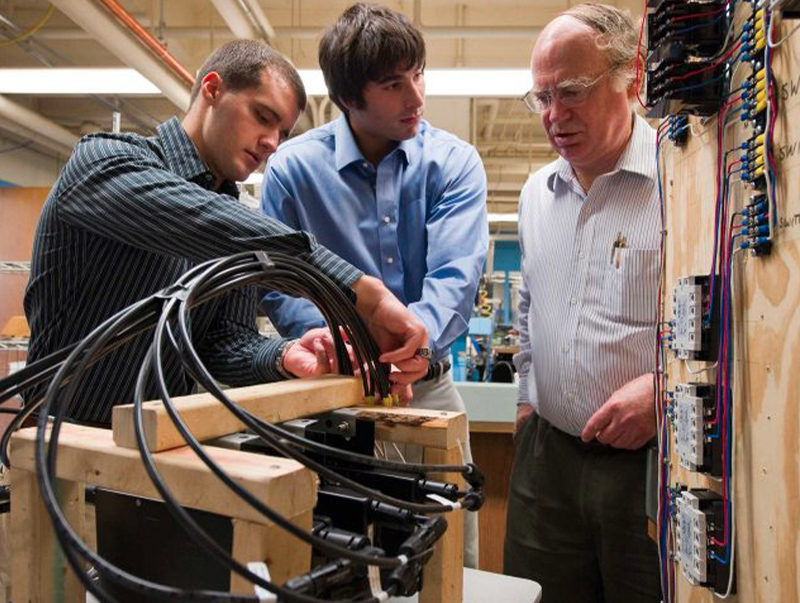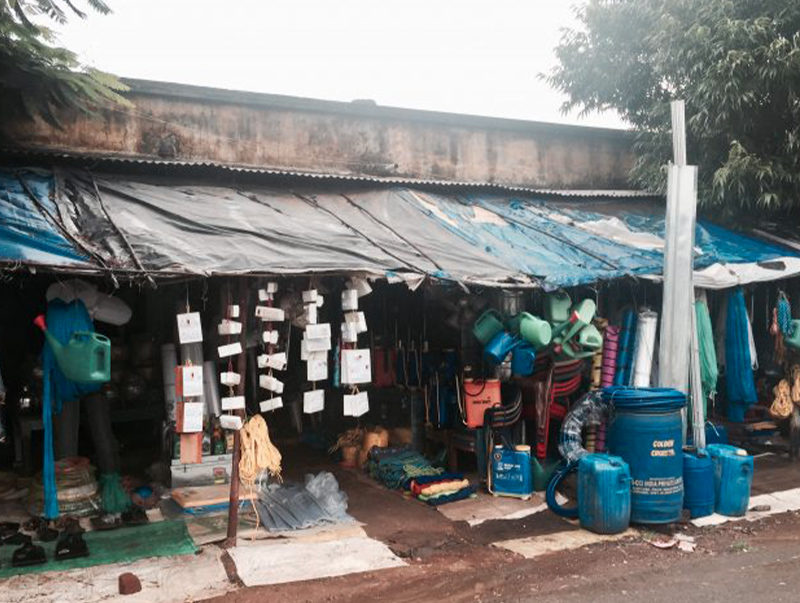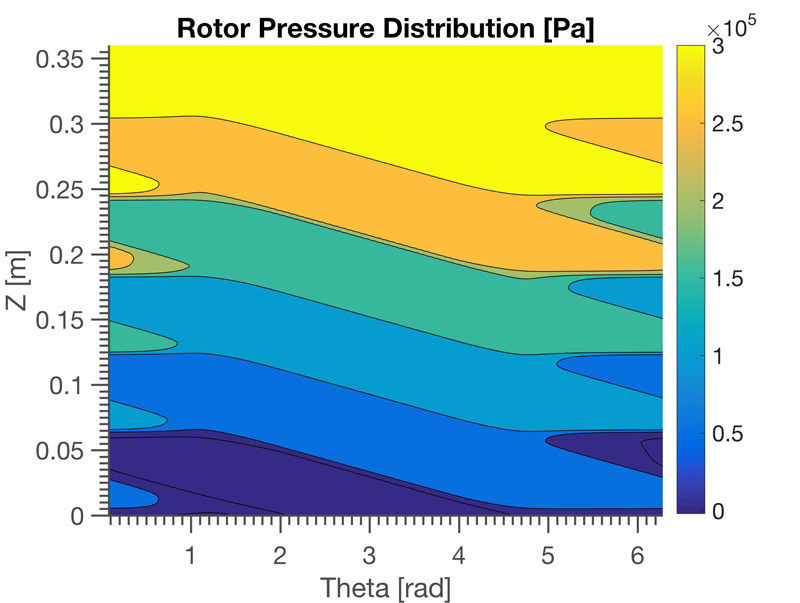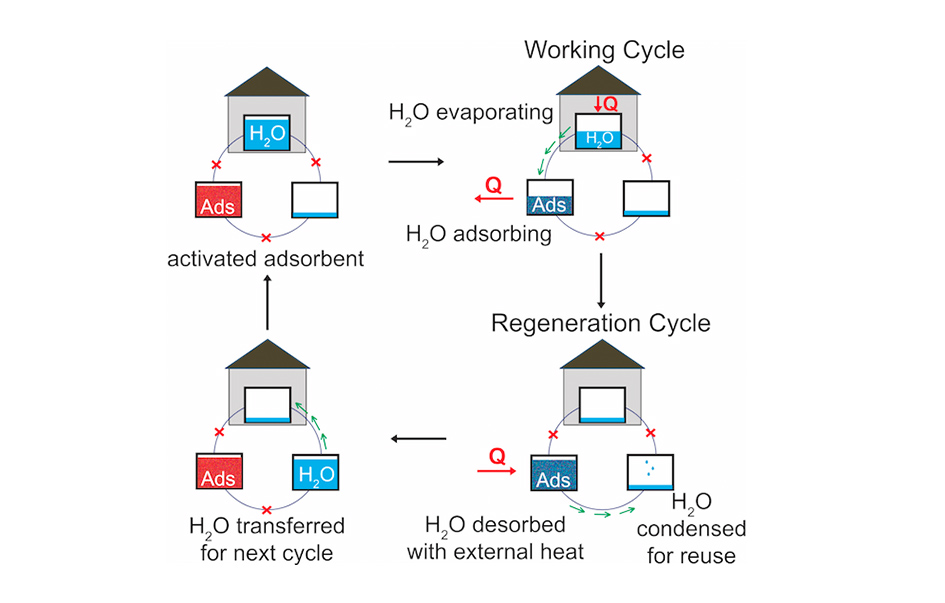
Thermally-driven adsorption cooling is an attractive alternative to conventional compression cooling for many applications because it utilizes low-grade or wastes heat from industrial, vehicular, or solar thermal sources instead of electrical power. Solar-thermal driven cooling is especially attractive because insolation is in phase with cooling demand. The preferred working fluids are water and ammonia because they have high enthalpies of evaporation, allowing for the elimination of refrigerants that damage the ozone layer, and thus making adsorption cooling very environmentally friendly. Furthermore, for refrigeration applications, ammonia can be used as the working fluid due to its lower freezing point.
This project aims to develop highly porous materials that can adsorb more refrigerant, transfer heat more efficiently, and be regenerated faster. This will enable the design of affordable, small, and light adsorption chillers that make virtually no sound, are long-lasting, and operate on just heat and environmentally benign fluids.
Beyond indoor air conditioning, applications for this technology in India include cold storage for crops after harvest as well as vaccine refrigeration during transport to rural areas.
Download the poster:



